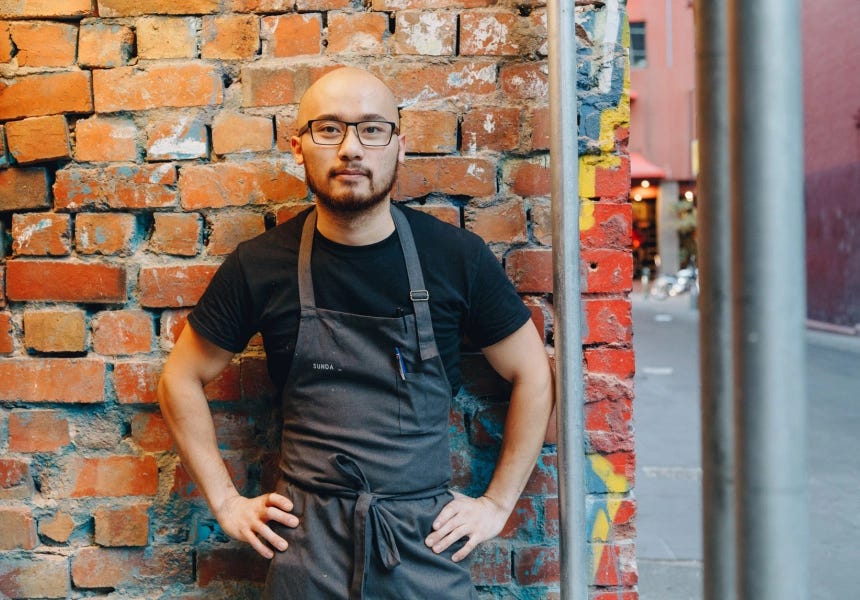I am exceedingly happy in a restaurant, but I am truly at home in a cinema (particularly a sparsely populated one). To me, they are a respite from the world. Once you are immersed in the darkness of a cinema, you are freed from the glare of society. You are, ideally, unreachable, because as convention dictates, your phone is put away. From there, you are transported to a new world, and for a few hours the only thing between you and escapism is a steady, mechanical oral influx of popcorn.
We are but a few weeks away from that most feted of awards ceremonies, The Oscars, and after a few lean years owing to COVID delays, this year’s best picture nominees are particularly strong. Each film represents a distinctly different tone; there’s something for everyone, and not unlike choosing a place to go for dinner, who you think should win says a lot about your personality. So, how would I describe each of these films to someone who hadn’t seen them? Why, through the only vortex I’m marginally qualified to apply: comparing them to Melbourne eating and drinking establishments.
So, come with me dear readers, as we embark on the very same empty calorie food media content I was railing against last week: the Oscar nominees as Melbourne venues.
The following contains very minor spoilers and numerous overworked metaphors.
The Holdovers
Alexander Payne’s moving sepia-flecked tale of an unlikely found family in a 1970’s New England boarding school was the feel-good film of the year. An old-school film both in appearance and motif, the generosity and warmth that radiated from The Holdovers has stuck with me, and stood out in a year where so many of the major contenders had a bleak, despairing theme. In one memorable scene, the characters share a meal of roast chicken as the winter rages outside, and I was reminded of the times I’ve sought refuge from the world in the welcoming, warm subterranean embrace of Phillipe. There are few more comforting dishes than Philippe Mouchel’s iconic poulet roti, honed across many decades and venues, as old school as any dish you’ll find in our city, and all the more special for it.
American Fiction
Despite festival darling status and a string of award nominations, Cord Jefferson’s breakthrough film American Fiction will not receive a cinematic release in Australia. In fact, it will almost certainly not receive a streaming or video on demand release before the academy awards transpire on March 11, making it the only film on this list unable to be legally viewed in Australia. This is a complete embarrassment to the Australian film industry, and the culmination of consecutive years of negligence from distributors. Australia’s status as a film nation, despite producing some of the biggest and most influential talent in the industry, is dwindling. As you can tell, this really pisses me off. Next.
Barbie
Barbie achieved what was thought to be impossible: a subversive, fearless feminist manifesto wrapped in a toy commercial that not only became one of the highest grossing films of all time, but was actually good. A neon ode to old Hollywood production values, Barbie was a hilarious and affecting confluence of style and substance. Helmed by writer/director Greta Gerwig and star/producer Margot Robbie, it’s hard not to draw a parallel with Hannah Green and Rosheen Kaul’s partnership at Brunswick’s Etta. They are our city’s premier female led owner/chef combo, and deliver not only the raucous fun of a successful, box office restaurant, but the meaningful and understated nuance of complex, inventive cooking.
Oppenheimer
We are aboard the mothership now. Imagine gazing out over your multimillion dollar dining room from behind the control centre of your multimillion dollar kitchen. Everything is state of the art, every prepped ingredient meticulously perfect, the seemingless boundless capabilities of your kitchen only matched by an unimpeded vista of the sparkling metropolis down below. This is how a chef at the pass of Vue de Monde probably feels during service, and almost certainly how Christopher Nolan feels behind a camera. One of the most lauded and successful filmmakers of this or any era, Nolan delivered his masterpiece in 2023. The harrowing epic biopic Oppenheimer became Nolan’s third $1billion grossing international film, and will almost certainly see him receive his first ever best director Oscar. Oppenheimer is also favourite to sweep most of the major categories, including best picture and both male acting categories; it’s a monolithic, imposing freight train of momentum. A recent meal at Vue left me with a similar feeling; a gigantic operation, executed to the exacting vision of one man, by a fleet of passionate artisans. Granted, just like a meal at Vue de Monde, Oppenheimer’s runtime is perhaps a touch indulgent, but we’ll forgive it that.
Poor Things
Yorgos Lanthimos’s technicolour fairytale Poor Things has several memorable food moments, but few as memorable as the custard tarts. Emma Stone’s reanimated hedonist hero Bella Baxter, on a visit to a fantastical Dali-esque rendering of Lisbon, is introduced to pastel de nata for the first time. She, not unlike how I imagine most people first react to the flakey baked Portuguese egg custard pastries, loses her fucking mind. They are, after all, one of the truly perfect foods of human civilization. Casa Nata, in Thornbury and Windsor, produce particularly pleasant ones, perfect with a cup of black coffee, and exceptional fuel for elongated furious jumping sessions with Mark Ruffalo.
Past Lives
In Celine Song’s directorial debut Past Lives, two childhood sweethearts explore the complex permutations of time, memory and distance. This distance is both physical and emotional, Nora and Hae Sung’s lives interweaving intermittently from afar, and culminating in a hypnotic, immersive dissertation on their history in a dimly lit New York bar. The film opens with the pair shot from across the room, through the perspective of another drinker, as we hear conjecture over how the pair know one another, and what their story may be. Collingwood’s intimate and intricate Above Board is one of the moodiest drinking rooms in Melbourne, perfect for an emotionally engrossing reconnection with a lost love, or just an expertly mixed drink.
Anatomy of a Fall
In Justine Triet’s riveting Anatomy of a Fall, the viewer is tempted with the intrigue of a traditional murder mystery, then dragged into an absorbing character study. Sandra Huller is masterful; her command of the script’s dancing linguistic patter, weaving between English, French and German, has made her a worthy Best Actress contender. It is a performance serving as a sort of Rorschach test; how much the viewer believes her or sympathises with her character can tell you a lot about their own beliefs. Similarly, if someone doesn’t like the smart French/Belgian bistro fare at Camberwell’s hidden gem Franco Belge, you can pretty much write them off as a human. Mosselen Friten is a must, the classic mussels and chips combo as good as any I’ve had, and they do a superb tartare. This is the closest restaurant I can think of to reflect Anatomy of a Fall’s French alps location, though I suppose you could always go for a fondue toastie from Maker & Monger. If any of my readers know of a French alps themed restaurant in Melbourne in which to dissect whether or not this woman murdered her husband, please reach out.
Maestro
As the music swells to the triumphant emotional climax of Bradley Cooper’s auteurist biopic Maestro, we are treated to one of the great modern cinematic moments. Cooper, who also stars in the film, is at once inhabited and possessed by the spirit of Leonard Bernstein, channelling not only the conductor’s energy, but physically emoting the man’s genius, plight and rebirth. To the strains of Mahler’s Resurrection Symphony, the scene was filmed on location and is captured almost entirely in one exhaustive, rejoicing shot. It is Cooper’s magnum opus, shedding his reputation as a polished and macho Hollywood leading man, and delivering the performance of his career, all in one scene. The grandiose splendour of Maestro could only be captured by one room in Melbourne, an altar to the emotive ballast of Italianality, and the melding of classical and modernity. Perched at the bar at Di Stasio Citta, you are greeted to a performance as graceful and epic as a Mahler symphony, each perfectly chilled martini arriving on stainless steel trays, glimmering like an orchestra’s brass section. The kitchen conducts your meal with the verve and spirit of Bernstein himself, the triumphant finale of a buttery white chocolate and pistachio tart sending you into giddy hysteria, like an edible symphonic climax. Bravo.
The Zone of Interest
Killers of the Flower Moon
Two of the year’s most lauded films, Jonathan Glazer’ hypnotic and unsparing The Zone of Interest and Martin Scorcesee’s brutal American horror story Killers of the Flower Moon, are not funny. Not great fodder for a mirthful and frankly unnecessary article, and I’m not sure any restaurateur would appreciate having their venue likened to films about genocide. So let’s skip these two.
Instead, I’m going to choose two other movies that I loved from this past year that were not nominated for best picture, but perhaps should have been.
All of Us Strangers
A moving, psychedelic tale of love, grief and fantasy, Andrew Haigh’s film is based on a 1987 novel by Japanese author Taichi Yamada, and features only four actors. It seems almost too obvious to equate it to Footscray’s omakase sushi temple Matsu, which features only four chairs, and I would love to do so, but I like most of Melbourne have been unable to get a reservation. Far simpler is getting a ticket to All of Us Strangers, certainly the year’s biggest Oscar snub, and having a good cry into your takeaway salmon avo handrolls.
The Killer
David Fincher’s procedural revenge thriller about a meticulous professional assassin who only listens to The Smiths led me to the obvious comparison of Joe Jones’s subterranean pleasure palace, Purple Pit. Jones’s imbibable inventions are painstakingly prepared and executed with the precision of a trained killer, and the jangly post-punk soundtrack fits like hand cut ice in a glass.
Bureau View in association with Broadsheet
In case you missed it, the first in our series for Broadsheet, Bureau View, went up this week, and it’s fair to say it ruffled a few feathers. In this series we’ll be taking an insiders view of the Melbourne dining scene, and discussing some of the stories (both good and bad) that are currently setting the hospo agenda.
Do you have a tip, or an idea for a story? You can reach me here on Substack, or drop me an email or a an Instagram DM.





